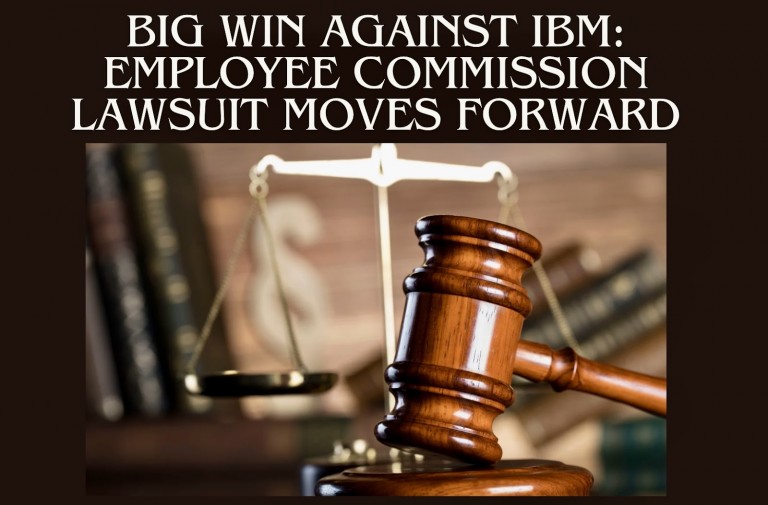At Lebau & Neuworth, we are proud to stand up for employees who are denied fair compensation, and we’re thrilled to share another significant victory.
The Case: Ward v. IBM
Tammy Ward dedicated more than 30 years to IBM, excelling in her role as a sales representative for IBM services. Her outstanding performance brought millions of dollars in revenue to the company and earned her well-deserved recognition. However, after closing two major deals, IBM refused to pay her the incentive compensation she had rightfully earned.
Ms. Ward did everything she could to resolve the issue within IBM’s internal channels. When those efforts were met with silence and resistance, she turned to us. We filed a lawsuit on her behalf in federal court in Maryland: Ward v. International Business Machines Corporation, Case No. 1:24-cv-00685-BAH (D. Maryland).
IBM Tried to Dismiss the Case - Twice. They Failed.
IBM filed two separate motions to dismiss the case, arguing that Ms. Ward’s claims were not legally valid. The federal court rejected all of IBM’s arguments in a detailed and decisive opinion.
Key Legal Victories for Employee Rights
The Court’s decision is a powerful affirmation of workers’ rights in Maryland. Here are the highlights:
1. Claims Under the Maryland Wage Payment and Collection Law (MWPCL):
This law protects employees’ rights to receive timely and full payment of wages, which are broadly defined to include commissions, bonuses, fringe benefits, and other compensation promised for services rendered.
IBM argued that Ms. Ward’s commissions weren’t “wages” because the company retained full discretion over incentive compensation. The Court firmly rejected that argument, finding that IBM did not have absolute discretion to deny payment for commissions that were already earned.
2. Breach of Contract:
The Court ruled that Ms. Ward had successfully stated a breach of contract claim. IBM’s reliance on a so-called disclaimer in its compensation documents wasn’t enough to defeat her right to pursue the claim.
3. Unjust Enrichment and Promissory Estoppel:
The Court also allowed Ms. Ward’s common law claims to go forward. Unjust enrichment occurs when one party benefits from the work of another without providing fair compensation. Promissory estoppel prevents a party from going back on a promise that someone else relied on to their detriment.
Both claims reflect the basic principle that promises made, especially in the workplace, must be honored.
What This Means for Workers
This case is a major step forward for employee rights in Maryland. It reinforces the importance of employers paying what they promise. Period.
If you’ve been denied fair wages, commissions, or other earned compensation, you don’t have to fight alone. We’re here to help.
Let us stand up for your right to be paid.
Reach out to Lebau & Neuworth at https://lebauneuworth.com to learn more about your rights and how we can help.






